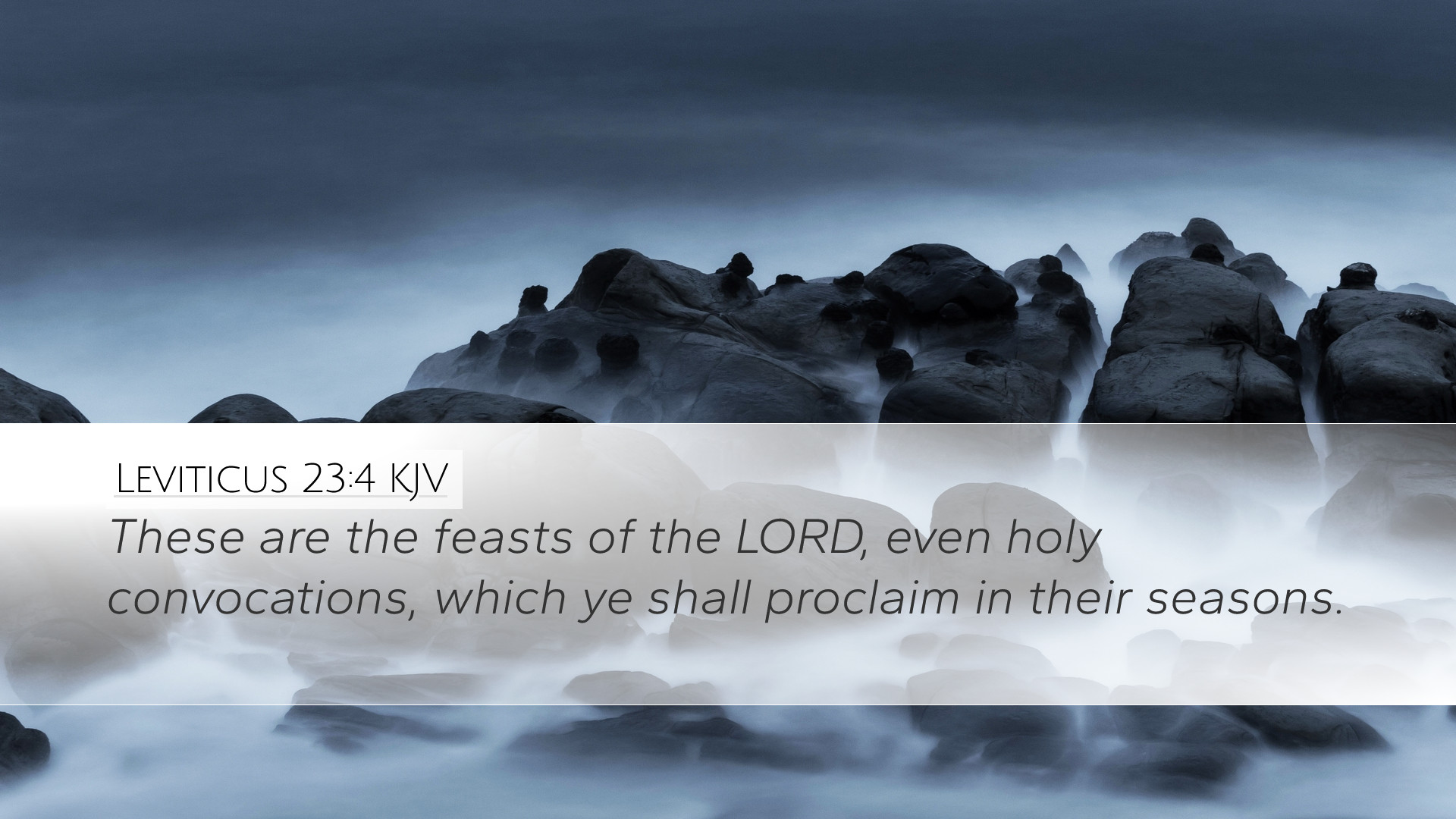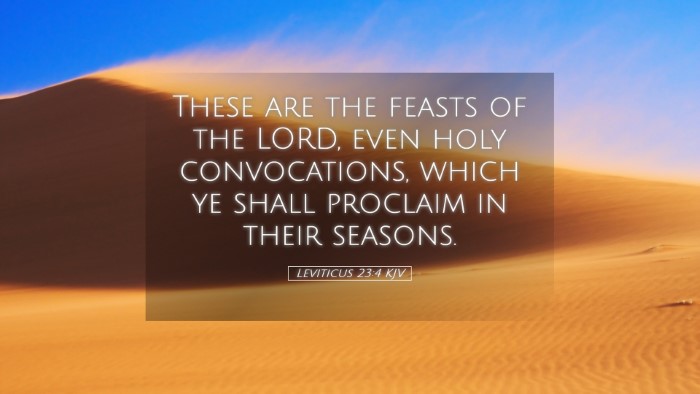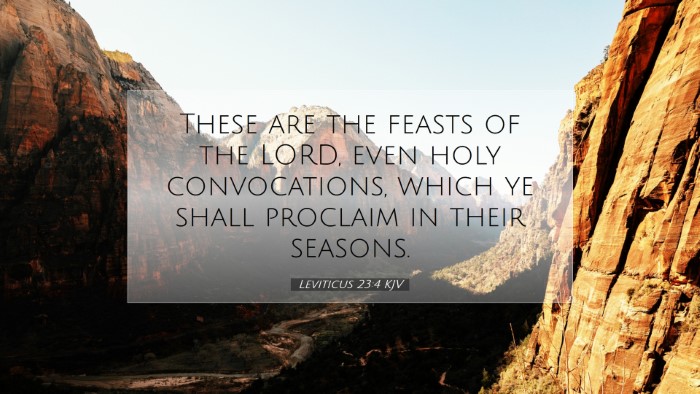Leviticus 23:4 - Commentary Overview
Leviticus 23:4 states, "These are the feasts of the LORD, even holy convocations, which ye shall proclaim in their seasons." This key verse in Leviticus outlines the divine appointments that God established for His people, setting the tone for understanding sacred time and communal worship in the history of Israel.
Contextual Background
This verse falls within a larger section that details the appointed feasts, where God instructs Moses on how the people of Israel should observe these sacred times. It’s essential to appreciate the cultural and theological context in which these instructions were given.
The Significance of 'Feasts'
The term "feast" in Hebrew (מְעָדֵי, moed) indicates not just a festival but also an appointed time. It highlights God’s intention to regularly intersperse the lives of Israel with moments of remembrance, reflection, and renewal in their relationship with Him.
Insights from Public Domain Commentaries
Matthew Henry's Commentary
Matthew Henry emphasizes the importance of these feasts, noting that they serve dual purposes: they are both reminders of God's providence and opportunities for communal worship and instruction. He states:
- “These feasts were intended to keep the people in a continual remembrance of God’s mercy and goodness towards them.”
- “They mark the seasons of grace and blessings from heaven.”
Henry also underscores the idea that spiritual celebrations should be in alignment with God’s designated times, indicating that true worship must be rooted in divine ordinance rather than human preference.
Albert Barnes' Commentary
Albert Barnes provides a detailed examination of the word "convocations," explaining that it refers to gatherings that are holy and are a form of worship. He notes:
- “These convocations were not for feasting alone but were occasions for public worship where the community glorifies God.”
Barnes also emphasizes the importance of observing these times with reverence, illustrating that the faithful are called to cherish and actively participate in what God has established.
Adam Clarke's Commentary
Adam Clarke brings attention to the ordered nature of these festivals and their role in Israel’s social and spiritual life. He writes:
- “God himself appointed these seasons to be observed with solemnity and sanctity.”
- “They are a shadow of good things to come, prefiguring the coming of Christ and the ultimate redemption.”
Clarke highlights the typological significance of the feasts, suggesting that they foreshadow the coming of Christ and the redemptive work He would accomplish, thus connecting the Old Testament practices to New Testament theology.
Theological Implications
In theological discourse, Leviticus 23:4 provides profound insights into the nature of time, worship, and community within the covenantal framework. The regularity of the feasts represents God’s desire for His people to anchor their lives around worship and remembrance.
1. The Divine Appointment of Time
This verse underscores the significance of time in the life of faith. God does not leave worship to chance but ordains specific seasons for His people to gather. The observance of these appointed times fosters a rhythm of grace that reminds believers of their identity as a community of faith.
2. Community and Worship
The holy convocations are a reminder that the faith experience is not isolated but communal. The gathering for these feasts serves to strengthen communal bonds, enhance shared understanding, and provide a platform for collective worship.
3. Remembrance and Reflection
Each feast is infused with meaning, intended to provoke reflection on God's faithfulness, provision, and the overarching narrative of redemption. This function of remembrance is vital for spiritual development and maturity within a Christian context.
Practical Applications for Today’s Believers
As contemporary Christians engage with Leviticus 23:4, several applications can be drawn:
- Regular Worship: Emphasizing the importance of establishing and maintaining regular rhythms of worship in personal and community life.
- Celebrating God’s Faithfulness: Incorporating festivals and moments of celebration within modern worship contexts to acknowledge God’s ongoing work in their lives.
- Teaching the Next Generation: Utilizing the framework of communal feasts to instruct younger generations about God's covenant and character, fostering a sense of continuity in faith.
Conclusion
Leviticus 23:4 serves as a pivotal verse that offers deep insight into the understanding of sacred time and community worship within the covenant of Israel. By integrating the insights from esteemed commentaries, pastors, students, theologians, and scholars can appreciate the essential themes of divine appointment, communal identity, and the significance of remembrance in fostering a vibrant faith. As believers reflect upon these ancient practices, they are encouraged to cultivate a rhythm of worship and community that honors the divine intention for our lives today.


